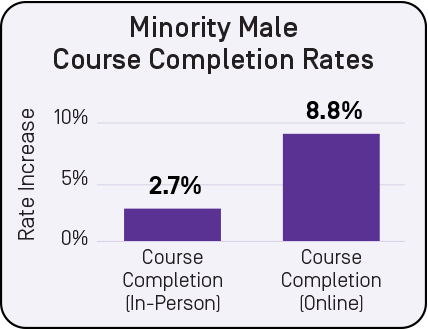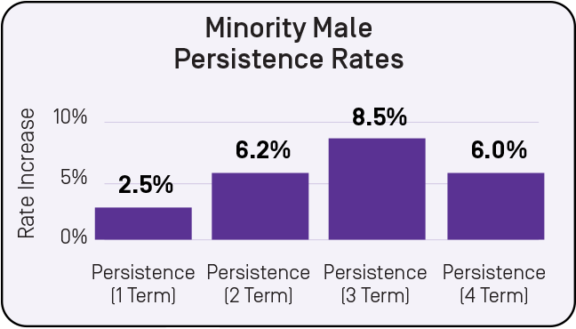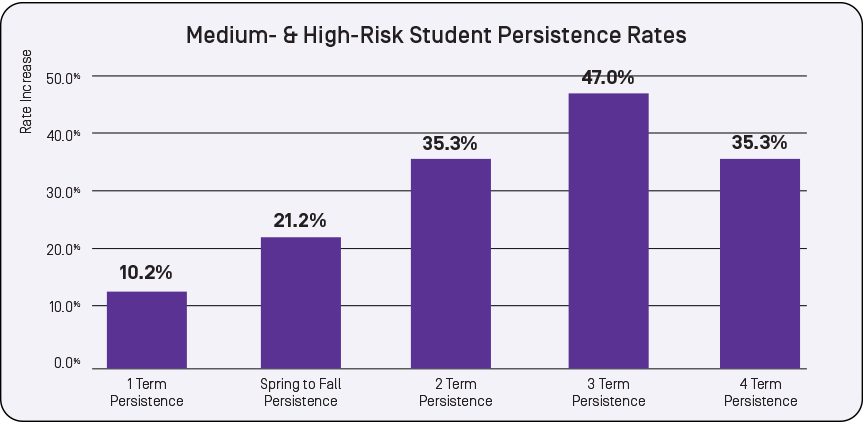When students pursue higher education, they have the opportunity to discover their passion, learn new concepts and skills, and explore future career paths. Higher education is also a driver of upward social mobility. However, equity gaps in higher education can impact student success.
If a student is part of a racial or ethnic minority, they will also face unique barriers that make pursuing a degree challenging. Students of color can experience racism, isolation, and feeling out of place due to the campus culture being vastly different from their culture at home. Equity gaps in higher education are disparities in performance and outcomes between different student groups. These disparities can create barriers that prevent learners from progressing. Some factors contributing to equity gaps include:
Equity gaps often highlight an inadequacy of current processes for providing the necessary support and resources for all student groups. Colleges and universities must take the initiative in creating equal chances of success across all groups to close these equity gaps. They can do this by identifying present gaps and implementing solutions.

Technology is one way that institutions can improve extra support without depleting funds. From streamlined student data collection to valuable analytics insights, institutions can leverage this information to create targeted and effective plans to close the equity gap.
Watermark and the North Carolina Community College System (NCCCS) partnered to research whether technology-enabled success coaching could close equity gaps in higher education. This study is called the Minority Male Success Initiative (MMSI).
All 11 participating institutions used Watermark Student Success & Engagement and hired success coaches to improve student outcomes.
Each college hired dedicated success coaches. Every student in an MMSI cohort was assigned a success coach.
A pattern of proactive outreach was established between the success coach and their students.
Student Success & Engagement flaggd at-risk students, enabled easy communication between student and success coach, provided an early alert system, and used predictive analytics for student success.
Overall, the course completion rates increased for the MMSI cohort students in both in-person and online courses, and term-to-term persistence also increased in all four cohorts.
Bryan Bell, Head of Data Science at Watermark, reflected on the results from the study saying,
“These results are impressive because they demonstrate that our hypothesis was correct. If students have the proper support and tools, they can reach their goals, and when institutions invest in the right technology, they can improve educational outcomes.”
 |
 |
When targeting additional support towards students that were marked medium-risk or high-risk,
persistence rates increased across all four terms.
Risk predictions can help success coaches prioritize resources for students most in need. When coaches have this additional support, they can efficiently initiate engagements that improve student outcomes.
 |

Frank Raya-Viera was a part of an MMSI cohort at Nash Community College. With the support of his success coach Jamal Pitt, Frank was able to graduate from Nash Community College and transfer to East Carolina University to pursue a degree in computer science. When asked about his experience working with Pitt, Frank expressed just how important this relationship was to his academic success:
| The MMSI project demonstrates that when institutions strategically align people, processes, and technology, they can improve student outcomes for vulnerable student populations.
The research shows an overall positive impact on retention, course completion, persistence, and engagement for minority male students. |
|
MMSI has a full story to tell. Fill out the form below to read our 20-page report detailing three different campus accounts of the study, in-depth results and reflections, and takeaways that could help you advance student success on your own campus. With our data-driven technology and programs, institutions can take the necessary steps to provide students with the resources and tools they require to reach success. Request a demo to find out how our solutions can help your institution.